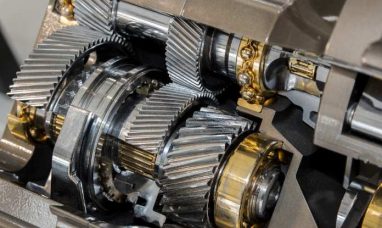The massive growth of e-commerce has put far more vehicles on the roads, which has increased global emissions. In fact, according to Shopify, as noted by Freight Waves, “greenhouse gas emissions in the atmosphere are at their highest levels in history, sitting at 400 parts per million (ppm). For comparison, CO2 sat at 280 ppm prior to the Industrial Revolution.” In addition, “Shopify as committed to investing at least $1 million each year into carbon sequestration, which is the “process of capturing and storing atmospheric carbon dioxide,” according to the U.S. Geological Survey.” Shopify isn’t the only company racing to help. Other top companies fighting climate change include
Better Plant Sciences Inc.
(CSE:PLNT)(OTC:VEGGF),
Ulta Beauty
(NASDAQ:ULTA),
First Solar
(NASDAQ:FSLR),
Blink Charging
(NASDAQ:BLNK), and
Enphase Energy
(NASDAQ:ENPH).
Look at
Better Plant Sciences Inc. (CSE:PLNT)(OTC:VEGGF), for example
Better Plant Sciences Inc.
, a wellness company that develops and sells sustainable, plant-based products that are better for health and better for the earth, has integrated EcoCart with its Shopify powered Jusu eCommerce platforms, getjusu.com and jusubar.com. EcoCart is a Google Chrome extension that utilizes a global network of reputable suppliers to sequester, reduce, and offset carbon emissions.
“Recent extreme weather events have raised awareness about the climate emergency and consumers are looking for ways to reduce their carbon footprint. One way to mitigate climate change is by offsetting carbon emissions,” says Better Plant CEO, Penny White. “We are impressed with how easily the app allows consumers to make their eCommerce orders carbon neutral by selecting the EcoCart option to add an amount based on product weight to the total.”
Global climate change is accelerating, and human-caused emissions of greenhouse gases are the overwhelming cause, according to a landmark report released on August 9, 2021 by the United Nations. Scientists say it is not too late to curb global warming by taking climate action.
EcoCart funds offset projects like forest protection, planting trees and building sustainable wind energy farms. Upon checkout, customers can select EcoCart’s carbon neutral option and instantly gain access to information about the specific carbon offset project that a percentage of their purchase will support. These projects reduce emissions of carbon dioxide or other greenhouse gases to compensate for emissions made elsewhere, like the emissions created from ordering something online. According to EcoCart, other brands using this extension to create a sustainable shopping experience include environmentally friendly brands like The Detox Market, BKIND, and the Eco Trade Company.
Even as vaccine rollouts ramp up and economies re-open, the boom in online shopping has been widely seen as a trend that is here to stay, making the opportunity to offset one’s carbon impact at checkout highly environmentally valuable. In a study by Shopify Plus, it was estimated that worldwide eCommerce sales were $3.5 trillion in 2019 and will grow to $6.5 trillion by 2023.
The Amsterdam University of Applied Sciences conducted a broad survey into the effect of different shopping options on carbon emissions, and it was revealed that home delivery is a very environmentally acceptable way for consumers to receive their purchases as opposed to driving to and from a store to make a single purchase. Better Plant will continue to develop its customer-centric eCommerce model and explore opportunities to make shopping more sustainable.
Other related developments from around the markets include:
Ulta Beauty
also works with EcoCart. According to
Freight Waves
, “Among the brands that are participating are Foot Locker, Freshly, Sephora, Kohl’s, Bose, Levi’s, Petco, Ulta Beauty and Vans. In some cases, [co-founder Dean] Baker said, the businesses themselves may pick up the cost of the carbon offsets. For consumers who use the browser extension, or visit a participating site, they will see a box at checkout asking if they would like to offset their carbon emissions. For those, it will add a slight cost to the final purchase price.
First Solar
announced that it
intends to invest $684 million
in a new, fully vertically integrated photovoltaic (PV) thin film solar module manufacturing facility in India. Contingent upon permitting, and pending approval of Indian government incentives that are satisfactory to First Solar, the advanced facility is expected to be built in the state of Tamil Nadu and commence operations in the second half of 2023.
Blink Charging,
a leading owner, operator, and provider of electric vehicle charging equipment and services, congratulates the
Biden Administration
and bipartisan lawmakers who agreed to a much-needed federal infrastructure package – highlighting the $7.5 billion allocated specifically to EV infrastructure and urges Congress to pass this package and take additional steps towards making America the worldwide leader in EV technology and infrastructure. “Blink is encouraged by the package’s inclusion of $7.5 billion for EV infrastructure, which represents a significant step to advance electric vehicle charging nationwide. As the auto industry accelerates its transition to zero-emission vehicles, EV charging infrastructure must be deployed to handle the demand,” stated Michael D. Farkas, Founder & CEO of Blink Charging.
Enphase Energy,
a global energy management technology company and the world’s leading supplier of microinverter-based solar-plus-storage systems, announced the launch of its
Encharge battery storage system in Germany
, the product’s first expansion into a market outside of the United States. The Encharge battery storage system offers configurations ranging from 3.5kWh to 42kWh, along with the option to upgrade and expand through the lifetime of the system. The introduction of battery storage to Enphase’s existing microinverter business in Germany will help meet installer and homeowner needs for a safe and reliable all-in-one solution. Homeowners can also use the Enphase Enlighten® mobile app to intelligently manage their solar energy in Self-Consumption Mode to minimize the use of electricity from the grid, which saves on energy bills.
Legal Disclaimer / Except for the historical information presented herein, matters discussed in this article contains forward-looking statements that are subject to certain risks and uncertainties that could cause actual results to differ materially from any future results, performance or achievements expressed or implied by such statements. Winning Media is not registered with any financial or securities regulatory authority and does not provide nor claims to provide investment advice or recommendations to readers of this release. For making specific investment decisions, readers should seek their own advice. Better Plant Sciences Inc.
has paid three thousand five hundred dollars for advertising and marketing services to be distributed by Winning Media. Winning Media is only compensated for its services in the form of cash-based compensation. Winning Media owns ZERO shares of Better Plant Sciences Inc.
Please
click here
for full disclaimer.
Contact Information:
2818047972
[email protected]








